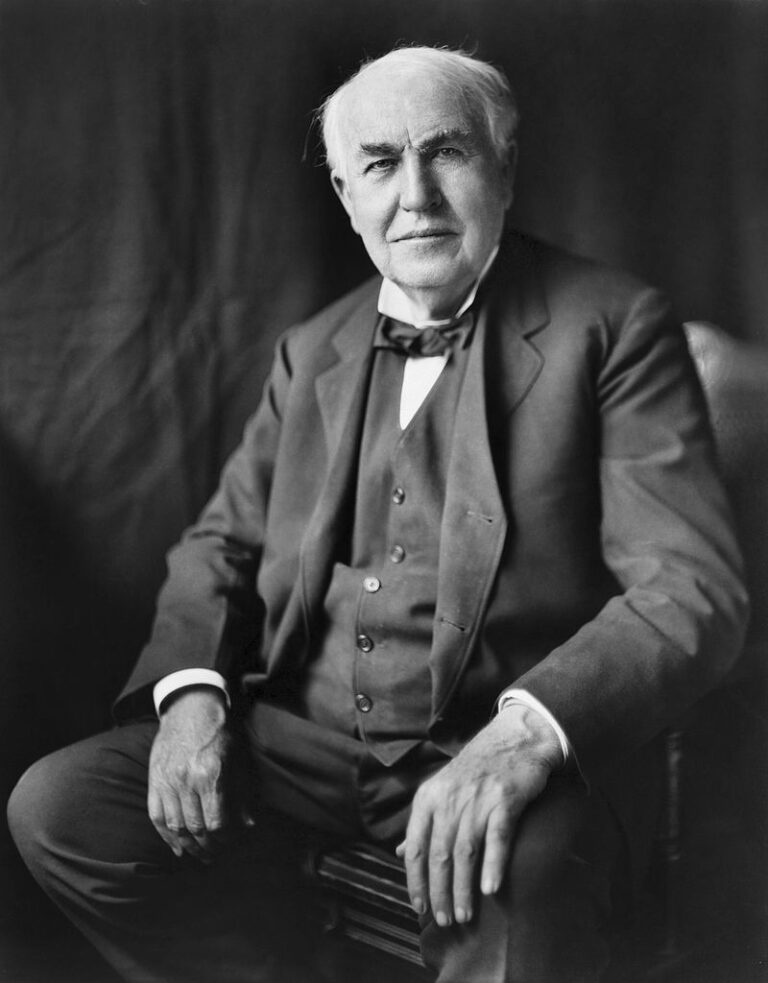Elevate and Excel: Cultivating a Network of Inspiration and Growth
Surround Yourself with Motivators: Unleashing Your Potential through Positive Relationships
In our journey towards personal and professional growth, one undeniable truth emerges: we are profoundly influenced by the people we surround ourselves with. The individuals we choose to have in our lives can either propel us forward or hold us back. It is said that we are the average of the five people we spend the most time with, and this notion holds immense power when it comes to leadership development.
Imagine a circle of individuals who inspire, motivate, and push you to be better—a group devoid of drama, negativity, jealousy, and hate. Picture an environment filled with good times and positive energy, where higher goals are set, and the motivation to achieve them is contagious. In this realm, each person’s ultimate aim is not only to succeed individually but also to bring out the absolute best in one another.
Surrounding yourself with people who elevate you to new heights is a crucial element of leadership development. The power of positive relationships cannot be overstated. They have the potential to shape our mindset, fuel our ambitions, and unleash our untapped potential. When we choose to associate ourselves with individuals who share our drive for growth and success, the possibilities become boundless.
Positive energy is the lifeblood of a supportive and uplifting environment. It acts as a catalyst for personal and professional transformations. When we immerse ourselves in an atmosphere permeated with optimism, encouragement, and enthusiasm, we tap into an endless reservoir of motivation. The collective energy becomes infectious, propelling each member of the group to surpass their own limitations and strive for greatness.
Building a network of high-achieving individuals is not a matter of chance or coincidence. It requires conscious effort and intentionality. We must actively seek out those who embody the qualities and achievements we aspire to attain. These individuals can serve as mentors, role models, and sources of inspiration, providing invaluable guidance and wisdom along our leadership journey.
But it’s not just about the successes and achievements. Equally important is the cultivation of a drama-free zone. Drama and negativity have no place in an environment that fosters growth and development. The toxic energy they bring drains our vitality and stifles our progress. By setting clear boundaries and promoting a positive culture, we create a space where constructive conversations, collaboration, and mutual support thrive.
Jealousy and hate are two emotions that have the power to poison relationships and hinder progress. When we surround ourselves with people who genuinely celebrate our victories and support our aspirations, we eliminate the corrosive effects of envy and animosity. Instead, we foster an environment of camaraderie, empathy, and understanding, where everyone’s accomplishments are embraced and cherished.
In this article, we delve into the immense benefits of surrounding yourself with people who push you to do and be better. We explore how these individuals can help us set higher goals, find motivation in the face of challenges, and create a cycle of continuous growth. Additionally, we examine the importance of identifying and eliminating toxic relationships that can hinder our progress, as well as strategies for building a supportive ecosystem that nurtures our leadership potential.
Join us on this transformative journey of discovering the extraordinary power of positive relationships and how they can shape our leadership trajectory. Together, we will unlock new dimensions of personal and collective excellence.
The Importance of Positive Energy
The impact of positive energy on personal and professional growth
Positive energy is a force that propels us forward, enabling us to reach new heights in our personal and professional lives. When we surround ourselves with people who radiate positivity, we tap into a wellspring of motivation, inspiration, and resilience. The influence of positive energy cannot be understated—it has the potential to transform our mindset, enhance our productivity, and foster a deep sense of fulfillment.
When we encounter individuals who exude positivity, their energy permeates our own being. We find ourselves buoyed by their enthusiasm, uplifted by their optimism, and invigorated by their unwavering belief in our abilities. Their contagious spirit ignites a fire within us, fueling our passion and igniting our drive to succeed. Through their words and actions, they remind us of our limitless potential and help us break free from self-imposed limitations.
Moreover, positive energy breeds a culture of possibility and growth. When we are surrounded by individuals who embody a can-do attitude, we begin to adopt the same mindset. We become more open to embracing challenges as opportunities for learning and growth. Failure ceases to be a source of discouragement but rather becomes a stepping stone on the path to success. Positive energy infuses us with the courage to take risks, experiment with new ideas, and step outside our comfort zones.
Creating a supportive and uplifting environment
A positive and supportive environment is essential for personal and collective growth. It is a space where encouragement, collaboration, and mutual respect flourish. In such an environment, individuals feel safe to express their ideas, share their vulnerabilities, and take calculated risks. They know that they will be met with support, constructive feedback, and a genuine desire to see them succeed.
To create a supportive and uplifting environment, we must first cultivate a culture of empathy and active listening. When we truly listen to others, seeking to understand their perspectives and experiences, we demonstrate respect and foster meaningful connections. By empathizing with their challenges and celebrating their successes, we forge deep bonds of trust and camaraderie.
Furthermore, a supportive environment is characterized by the willingness to offer assistance and guidance. As individuals committed to each other’s growth, we actively contribute to one another’s development. We share our knowledge, skills, and experiences, providing valuable insights and mentorship. Through this collaborative exchange, we create a collective intelligence that far surpasses what any one individual could achieve alone.
In addition, a supportive environment embraces the power of recognition and celebration. It acknowledges and appreciates the efforts and achievements of its members. Whether it’s a small milestone or a significant accomplishment, each success is acknowledged and celebrated. This recognition not only reinforces positive behavior but also inspires others to strive for their own achievements.
Creating a supportive and uplifting environment is a continuous process that requires commitment from all involved. It necessitates the cultivation of self-awareness, as individuals must recognize and manage their own energy and attitudes. It also requires setting clear expectations, establishing shared values, and addressing any conflicts or issues promptly and constructively. When we actively work towards building and sustaining such an environment, we unlock the transformative power of positive energy.
In the next section, we explore the process of building a network of high-achieving individuals who can serve as sources of inspiration, guidance, and motivation. We delve into the qualities to look for in mentors and role models and how their influence can shape our leadership development journey. Join us as we uncover the secrets to surrounding ourselves with individuals who will push us to do and be better.
Building a Network of High-Achieving Individuals
Identifying individuals who inspire and motivate
Building a network of high-achieving individuals is a deliberate and strategic process that involves identifying individuals who inspire and motivate us to reach our full potential. These individuals possess qualities, accomplishments, and perspectives that resonate with our own aspirations, making them ideal sources of inspiration and guidance.
When seeking out individuals to include in our network, it is important to look beyond superficial measures of success. While accolades and achievements can be indicators of excellence, it is equally crucial to consider qualities such as integrity, resilience, and a growth mindset. Look for individuals who embody the values and principles that align with your own vision of leadership.
One effective way to identify potential network members is through research and exploration. Dive into the world of leadership literature, attend industry conferences and events, and engage in online communities. Seek out thought leaders, industry experts, and successful professionals who are making a positive impact in their respective fields. Pay attention to their stories, insights, and contributions, and assess how they align with your own goals and values.
Additionally, seek out individuals who possess qualities and skills that complement your own strengths and areas of growth. Surrounding yourself with diverse perspectives and expertise enhances your own development. Look for individuals who are willing to share their knowledge and experiences, as their insights can provide valuable guidance on your leadership journey.
Seeking out mentors and role models
In the quest for personal and professional growth, mentors and role models play an invaluable role. Mentors are experienced individuals who provide guidance, support, and wisdom based on their own journey and expertise. They offer a unique perspective and can help navigate challenges, make important decisions, and develop new skills.
When seeking a mentor, consider individuals who have achieved the level of success you aspire to reach. Look for someone who embodies the qualities and values you admire and who has demonstrated a genuine commitment to helping others grow. Approach potential mentors with humility, a willingness to learn, and a clear articulation of what you hope to gain from the relationship.
Role models, on the other hand, may not be directly involved in our lives but serve as sources of inspiration and motivation from afar. They can be historical figures, public figures, or even individuals within your industry whom you admire for their achievements, leadership style, or impact on society. Studying their journeys, reading their biographies, or following their work can provide valuable insights and inspiration.
Remember that building a network of high-achieving individuals is not just about what you can gain from them, but also about what you can contribute. As you connect with these individuals, seek to add value to their lives as well. Share your own knowledge, experiences, and perspectives. Offer support and encouragement. Actively contribute to the growth and success of others within your network.
In the next section, we delve into the importance of cultivating a drama-free zone—an environment free from negativity, jealousy, and hate. Join us as we explore the detrimental effects of these toxic emotions and how fostering positive relationships can create a space for personal and collective excellence.
Cultivating a Drama-Free Zone
Recognizing the detrimental effects of drama and negativity
In the pursuit of personal and collective excellence, it is crucial to cultivate a drama-free zone—a space where negativity, gossip, and unnecessary conflicts are kept at bay. Drama and negativity drain our energy, distract us from our goals, and hinder our progress. Recognizing the detrimental effects of these toxic elements is essential for creating an environment conducive to growth and success.
Drama is often characterized by excessive emotional reactions, conflicts, and a focus on trivial matters. It creates a chaotic and disruptive atmosphere that diverts our attention away from our core objectives. Engaging in drama not only wastes precious time and energy but also erodes trust and damages relationships. It fosters an environment where individuals are more focused on personal vendettas and power struggles rather than on collaboration and achieving shared goals.
Negativity, on the other hand, manifests in various forms, such as constant complaining, pessimism, and a cynical outlook. Negative energy permeates an environment and seeps into the psyche of individuals, sapping their motivation and enthusiasm. It stifles creativity, hampers problem-solving, and erodes morale. Negativity is contagious, spreading like wildfire and undermining the collective spirit required for growth and success.
Establishing boundaries and promoting a positive culture
To cultivate a drama-free zone, it is essential to establish clear boundaries and promote a positive culture within the team or organization. This starts with fostering open communication channels that encourage transparency, respect, and constructive feedback. When individuals feel safe expressing their thoughts and concerns in a supportive environment, they are less likely to resort to drama as a means of communication.
Setting expectations around behavior and conduct is equally important. Clearly define acceptable behavior and make it known that drama, gossip, and negativity will not be tolerated. This sends a strong message that the focus is on fostering a positive and productive atmosphere. Encourage individuals to take responsibility for their actions, emphasizing the importance of accountability and the impact their behavior has on the collective success of the team.
Promoting a positive culture involves recognizing and celebrating achievements, both big and small. Create rituals or platforms where individuals can share their successes, express gratitude, and acknowledge the contributions of others. By highlighting the positive aspects of the team or organization, individuals are motivated to continue striving for excellence and are less inclined to engage in negative behaviors.
Furthermore, fostering a culture of empathy and understanding is essential for minimizing conflicts and misunderstandings. Encourage active listening, empathy, and perspective-taking. When individuals take the time to understand each other’s viewpoints and experiences, they are more likely to find common ground and resolve conflicts amicably.
In this drama-free zone, it is essential to address any conflicts or issues promptly and constructively. Encourage individuals to engage in open dialogue, seeking resolutions that benefit everyone involved. Provide the necessary support and resources for conflict resolution, such as mediation or training in effective communication and conflict management techniques.
By cultivating a drama-free zone, we create an environment where individuals can focus on their goals, collaborate effectively, and unleash their full potential. It becomes a space where creativity flourishes, relationships thrive, and personal and collective growth can be realized.
In the next section, we explore the poisonous emotions of jealousy and hate and their detrimental effects on relationships and progress. Join us as we delve into strategies for fostering an environment devoid of these toxic emotions, allowing individuals to bring out the best in each other and reach new levels of success.
Jealousy and Hate: Poisonous Emotions
Understanding the destructive nature of jealousy and hate
Jealousy and hate are two poisonous emotions that have the power to erode relationships, hinder personal growth, and impede collective progress. Recognizing their destructive nature is crucial in creating an environment that promotes positivity, collaboration, and mutual support.
Jealousy arises when we perceive someone else’s success, achievements, or possessions as a threat to our own sense of self-worth. It breeds a toxic comparison mindset, where we constantly measure ourselves against others, often leading to feelings of inadequacy, bitterness, and resentment. Jealousy undermines trust, fuels animosity, and creates a toxic atmosphere of competition rather than cooperation.
Hate, on the other hand, stems from deep-seated negative emotions and prejudices. It often arises from a lack of understanding, fear, or unresolved conflicts. Hate thrives on divisiveness, promotes negativity, and creates an environment of hostility, impeding collaboration and inhibiting the free exchange of ideas. It damages relationships, sows discord, and hampers progress towards shared goals.
Fostering an environment of support and celebration
To create an environment that fosters personal and collective excellence, it is imperative to cultivate a space free from jealousy and hate. This requires conscious effort and a commitment to promoting positive emotions and attitudes.
Promoting a culture of support is key to combating jealousy and hate. Encourage individuals to genuinely celebrate each other’s successes and accomplishments. Cultivate an atmosphere of collaboration, where everyone is viewed as a valuable contributor to the team’s success. By shifting the focus from competition to collaboration, individuals begin to see each other as allies rather than threats, fostering a supportive and empowering environment.
Education and awareness play a vital role in combating jealousy and hate. Promote empathy and understanding by encouraging individuals to learn about different perspectives, backgrounds, and experiences. Emphasize the importance of embracing diversity and inclusion as drivers of innovation and creativity. By fostering an environment that values and respects each individual’s unique contributions, you create a sense of belonging and unity that is immune to the divisive nature of jealousy and hate.
Leaders must lead by example in fostering a culture of support and celebration. Show genuine appreciation for the efforts and achievements of individuals within the team or organization. Publicly acknowledge their contributions, highlighting their strengths and positive impact. This not only boosts morale and motivation but also sets the tone for a culture where positivity and support are valued and encouraged.
It is equally important to address any instances of jealousy or hate promptly and constructively. Open channels of communication and encourage individuals to express their concerns or grievances in a respectful manner. Provide opportunities for mediation or conflict resolution, ensuring that any underlying issues are addressed and resolved effectively. By addressing these toxic emotions head-on, you create an environment where individuals can grow and thrive without the burden of negativity.
By fostering an environment devoid of jealousy and hate, individuals can bring out the best in each other, collaborate effectively, and achieve remarkable results. Embracing a culture of support, empathy, and celebration creates a space where positivity reigns, enabling personal and collective growth to flourish.
In the next section, we explore the concept of mutual growth and encouragement within a positive network of individuals. Join us as we delve into the transformative power of collaboration, shared aspirations, and the journey towards achieving higher goals together.
Mutual Growth and Encouragement
The power of collaboration and shared aspirations
In a network of individuals committed to personal and collective excellence, mutual growth and encouragement are the driving forces that propel everyone forward. Collaboration becomes the cornerstone of success as individuals come together to leverage their collective strengths, knowledge, and experiences. By combining their efforts and working towards shared aspirations, they create an environment where extraordinary achievements are possible.
Collaboration fosters innovation and creativity. When individuals from diverse backgrounds and expertise collaborate, they bring forth a range of perspectives, ideas, and approaches. This synergy of ideas sparks innovation and allows for breakthrough solutions to emerge. By embracing collaboration, individuals challenge each other’s assumptions, expand their horizons, and push the boundaries of what is possible.
Shared aspirations form the foundation upon which mutual growth and encouragement thrive. When individuals within a network share a common vision and goals, they create a collective purpose that fuels their drive and determination. The power of shared aspirations lies in the collective responsibility and accountability that comes with it. Each member of the network becomes invested in supporting and uplifting others, knowing that their success is intertwined with the success of the whole.
Inspiring and bringing out the best in each other
Within a network focused on mutual growth, individuals inspire and bring out the best in each other. They become catalysts for personal and professional development, constantly pushing each other to reach new heights of achievement. The power of inspiration lies in the ability to ignite passion, enthusiasm, and a relentless pursuit of excellence.
Inspiration can take many forms. It can come from witnessing the accomplishments of others, hearing their stories of resilience and triumph, or observing their unwavering commitment to their craft. By surrounding themselves with individuals who inspire them, individuals tap into a wellspring of motivation and drive. They see what is possible and are encouraged to push beyond their own limits.
Bringing out the best in each other requires creating a culture of support and encouragement. Within the network, individuals uplift and empower one another. They provide constructive feedback, offer guidance, and celebrate each other’s successes. By acknowledging and appreciating each other’s strengths, they create an environment where everyone feels valued and motivated to continue growing.
Moreover, bringing out the best in each other involves challenging and stretching one another’s capabilities. Constructive criticism and healthy competition can serve as catalysts for growth. By respectfully pushing each other to go beyond their comfort zones, individuals discover untapped potential and develop skills they may not have otherwise explored. It is through this process of mutual challenge and support that true transformation occurs.
As a network committed to mutual growth and encouragement, individuals not only elevate their own potential but also serve as beacons of inspiration for others. Their achievements inspire those around them to strive for greatness, creating a ripple effect of excellence within the network.
In the next section, we explore the importance of setting higher goals and how they fuel motivation and drive within a positive network. Join us as we uncover the strategies for setting ambitious goals and the role they play in unlocking individual and collective potential.
Motivation through Positive Reinforcement
Celebrating successes and acknowledging progress
Motivation is the fuel that propels individuals toward their goals and aspirations. Within a positive network that fosters personal and collective excellence, positive reinforcement becomes a powerful tool for sustaining motivation and driving continuous growth. Celebrating successes and acknowledging progress are essential components of this process.
Celebrating successes, both big and small, is an important way to reinforce positive behavior and achievements. Recognizing and commemorating milestones, accomplishments, and breakthroughs not only boosts individual morale but also strengthens the bond within the network. Celebrations can take various forms, such as team gatherings, awards ceremonies, or even heartfelt expressions of appreciation. By celebrating successes, individuals feel valued and motivated to strive for further accomplishments.
In addition to celebrating major milestones, acknowledging progress is equally important. Recognizing the efforts, improvements, and incremental steps towards a goal provides a sense of validation and encouragement. By acknowledging progress, individuals understand that their efforts are recognized and valued, motivating them to continue their journey towards excellence.
Creating a cycle of continuous motivation
Positive reinforcement creates a cycle of continuous motivation within a positive network. When individuals receive recognition and appreciation for their efforts, they are motivated to maintain their momentum and strive for further growth. This cycle is fueled by a sense of achievement and the desire to continually improve.
To create a cycle of continuous motivation, it is important to provide specific and meaningful feedback. Rather than generic praise, offer feedback that highlights the specific strengths and contributions of individuals. This helps individuals understand the impact of their efforts and provides direction for further growth. Additionally, provide opportunities for individuals to reflect on their achievements and identify areas for future development. By encouraging self-reflection, individuals can set new goals and challenge themselves to reach even higher levels of performance.
Moreover, within the network, foster a culture of support and encouragement. Encourage individuals to cheer each other on, offer words of encouragement, and provide assistance when needed. By uplifting and motivating each other, individuals create an environment where everyone feels supported and inspired to overcome challenges and achieve their goals.
Setting regular check-ins and progress reviews is another effective strategy to maintain motivation. By regularly assessing individual and collective progress, individuals can track their development and make adjustments as needed. These check-ins provide an opportunity to celebrate achievements, address challenges, and set new targets, ensuring that motivation remains high throughout the journey.
It is important to note that motivation is not solely derived from external sources. Intrinsic motivation, driven by an individual’s own passion, purpose, and commitment, is equally important. Within the network, individuals should be encouraged to connect with their own intrinsic motivations, understand their personal values and goals, and align them with the shared aspirations of the network. By tapping into their intrinsic motivation, individuals cultivate a deep sense of purpose and drive that sustains them even during challenging times.
Positive reinforcement and creating a cycle of continuous motivation are integral elements of a positive network that fosters personal and collective excellence. By celebrating successes, acknowledging progress, and fostering a culture of support and encouragement, individuals within the network remain motivated and inspired to reach new heights of achievement.
In the final section, we summarize the key insights and takeaways from this article, emphasizing the transformative power of surrounding ourselves with people who push us to do and be better.
Identifying and Eliminating Toxic Relationships
Recognizing signs of toxic relationships
In the pursuit of personal and collective excellence, it is vital to identify and eliminate toxic relationships within our networks. Toxic relationships can drain our energy, hinder our progress, and create a negative environment that stifles growth. Recognizing the signs of toxic relationships is crucial for maintaining a positive and supportive network.
One common sign of a toxic relationship is consistent negativity. If an individual consistently brings pessimism, cynicism, and complaints into interactions, it can create a toxic atmosphere that dampens motivation and productivity. Additionally, constant criticism, belittlement, and lack of respect are indicators of a toxic relationship. When individuals do not feel valued or respected within the network, it erodes their self-esteem and hampers their ability to contribute effectively.
Another red flag is excessive drama and conflicts. Toxic relationships often breed unnecessary drama, gossip, and conflicts that distract from the shared goals and purpose of the network. These conflicts can be manipulative, divisive, and harmful to the overall dynamics of the group. Additionally, a lack of trust, dishonesty, and frequent breaches of confidentiality can signify toxic relationships within the network.
Strategies for disengaging from negative influences
Once toxic relationships are identified, it is important to take decisive action to disengage from these negative influences. Although it can be challenging, doing so is essential for maintaining a healthy and supportive network. Here are some strategies for disengaging from toxic relationships:
-
Set boundaries: Clearly define and communicate your boundaries with individuals who exhibit toxic behavior. Let them know what is acceptable and what is not. By setting and enforcing boundaries, you protect your own well-being and create a safe space within the network.
-
Limit interactions: Minimize your interactions with toxic individuals. This may involve avoiding one-on-one interactions or reducing the frequency and duration of your engagements. By limiting your exposure, you can mitigate the negative impact they have on your energy and motivation.
-
Seek support from others: Lean on supportive individuals within the network who can provide guidance, perspective, and encouragement. Share your concerns with trusted colleagues, mentors, or friends who can help you navigate the situation and provide support during the disengagement process.
-
Focus on positive relationships: Shift your attention and energy towards nurturing and developing positive relationships within the network. Surround yourself with individuals who uplift, inspire, and support your growth. By redirecting your focus towards positive influences, you create a more conducive environment for personal and collective excellence.
-
Seek professional help if needed: In cases where toxic relationships are deeply ingrained or pose significant emotional challenges, consider seeking support from a professional counselor or therapist. They can provide guidance and strategies for coping with and disengaging from toxic individuals.
Remember, disengaging from toxic relationships is not about passing judgment or harboring resentment. It is about prioritizing your well-being and creating an environment that nurtures growth and positivity. By proactively addressing toxic relationships, you create space for healthier connections and allow yourself to thrive within the network.
Creating a Supportive Ecosystem
Building a diverse network of support
In our journey towards personal and collective excellence, creating a supportive ecosystem is essential. This ecosystem comprises a diverse network of individuals who provide guidance, inspiration, and support. Building such a network allows us to tap into a wealth of knowledge, experiences, and perspectives that fuel our growth and development.
Diversity within the network is crucial as it brings together individuals from different backgrounds, industries, and skill sets. Embracing diversity enhances creativity, innovation, and problem-solving capabilities. By engaging with individuals who possess unique perspectives and expertise, we broaden our own horizons and gain fresh insights that challenge our assumptions and expand our thinking.
In building a diverse network of support, it is important to reach beyond our immediate circles and seek connections with individuals who offer diverse perspectives and experiences. Attend industry conferences, join professional associations, and participate in networking events that attract individuals from various backgrounds. Engage in online communities and forums where you can connect with like-minded individuals from around the world. By actively seeking out diversity in our network, we create an ecosystem that fosters growth, learning, and mutual support.
Fostering an environment of growth and empowerment
Within this supportive ecosystem, it is vital to foster an environment that nurtures growth and empowerment. This begins with creating a culture that values continuous learning, professional development, and personal growth. Encourage individuals within the network to engage in ongoing education, attend workshops or training programs, and share their newfound knowledge with others. By promoting a culture of growth, individuals feel empowered to pursue their passions, expand their skills, and take on new challenges.
In addition to learning and growth, empowerment is fostered through the establishment of mentorship and coaching relationships. Encourage individuals to seek out mentors and coaches who can provide guidance, challenge their thinking, and offer support. These relationships serve as a source of inspiration, motivation, and accountability. Mentors and coaches provide valuable insights, share their experiences, and help individuals navigate obstacles and seize opportunities.
Moreover, empowerment thrives when individuals are given autonomy and the freedom to make decisions and take ownership of their work. Encourage individuals to take on leadership roles, delegate responsibilities, and empower them to contribute to the success of the network. By providing opportunities for individuals to take initiative and make meaningful contributions, they develop a sense of ownership and fulfillment.
Within this ecosystem of support, it is crucial to foster a spirit of collaboration rather than competition. Encourage individuals to share resources, knowledge, and connections. Facilitate opportunities for collaboration and cross-pollination of ideas. By fostering a collaborative environment, individuals amplify their impact, leverage each other’s strengths, and achieve collective goals that surpass what any individual could accomplish alone.
In this supportive ecosystem, celebrating diversity, fostering growth, and empowering individuals are the pillars that drive personal and collective excellence. By actively cultivating such an environment, we create a network that thrives on collaboration, innovation, and mutual support.
Together Towards Greatness: Creating an Ecosystem of Support and Excellence
In the journey towards personal and collective excellence, surrounding ourselves with individuals who push us to do and be better is paramount. The power of positive relationships cannot be overstated. When we immerse ourselves in an ecosystem of support, inspiration, and growth, we unlock new dimensions of leadership and reach extraordinary heights of achievement.
Throughout this article, we have explored various aspects of creating a network that fosters personal and collective excellence. We have emphasized the importance of positive energy, building a diverse network of high-achieving individuals, cultivating a drama-free zone, and eliminating toxic relationships. We have delved into the detrimental effects of jealousy and hate, as well as the transformative power of mutual growth, setting higher goals, and positive reinforcement.
By surrounding ourselves with individuals who inspire and motivate us, we tap into a wellspring of inspiration and drive. We become part of a supportive ecosystem that encourages collaboration, celebrates successes, and acknowledges progress. In this environment, we find the motivation to set higher goals and continuously strive for excellence, knowing that we have the backing of individuals who genuinely want to see us succeed.
Creating such an ecosystem requires deliberate effort and intentionality. It necessitates being discerning about the individuals we choose to associate ourselves with and actively seeking out mentors, role models, and supportive peers. It involves establishing clear boundaries, fostering a culture of positivity, and addressing conflicts or toxic relationships promptly and constructively.
Within this ecosystem, we celebrate diversity, embrace collaboration, and foster a spirit of growth and empowerment. We recognize that personal and collective excellence is not achieved in isolation but through the collective efforts of a network committed to each other’s success. We understand that success is not a finite resource to be competed for but rather a collective endeavor that is amplified through collaboration and mutual support.
As we conclude this article, let us remember the transformative power of surrounding ourselves with individuals who push us to do and be better. Let us embrace the beauty of positive relationships, fueled by good times, positive energy, and higher goals. Let us strive for personal and collective excellence, always seeking to bring out the absolute best in each other.
In our journey as leaders, let us continuously cultivate a network that inspires, motivates, and uplifts. Let us be the change agents who create supportive ecosystems where individuals can thrive, innovate, and make a positive impact in the world. By surrounding ourselves with individuals who push us to do and be better, we unlock our true potential and embark on a path of extraordinary leadership and growth.







